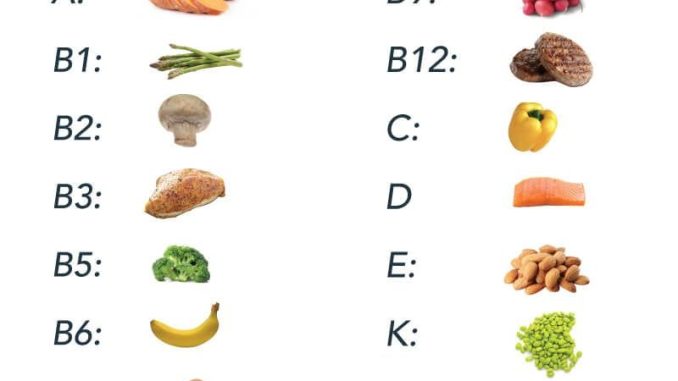
In today’s fast-paced world, maintaining a strong and healthy body is more important than ever. With the advancements in technology and the availability of processed foods, it’s easy to overlook the essential vitamins and minerals our bodies need to function at their best. In this article, we will explore the key vitamins and minerals that are crucial for maintaining a strong and healthy body.
Vitamin C
Vitamin C is a powerful antioxidant that plays a crucial role in boosting the immune system and protecting the body from harmful free radicals. It also helps in the production of collagen, which is essential for healthy skin, bones, and joints. Foods rich in vitamin C include citrus fruits, bell peppers, strawberries, and kiwi.
Vitamin D
Vitamin D is essential for strong bones and teeth, as it helps the body absorb calcium and phosphorus. It also plays a key role in regulating the immune system and reducing inflammation. While the sun is a natural source of vitamin D, you can also find it in fatty fish, egg yolks, and fortified foods like milk and yogurt.
Vitamin B12
Vitamin B12 is important for nerve function, DNA production, and red blood cell formation. A deficiency in vitamin B12 can lead to fatigue, weakness, and even neurological problems. Good sources of vitamin B12 include meat, fish, eggs, and dairy products.
Iron
Iron is essential for the production of hemoglobin, which carries oxygen from the lungs to the rest of the body. A lack of iron can lead to anemia, resulting in fatigue, weakness, and pale skin. Iron-rich foods include red meat, poultry, beans, and fortified cereals.
Calcium
Calcium is crucial for strong bones and teeth, as well as proper muscle function and nerve transmission. It also plays a role in blood clotting and hormone secretion. Dairy products like milk, cheese, and yogurt are excellent sources of calcium, as well as green leafy vegetables and fortified foods.
Magnesium
Magnesium is important for over 300 biochemical reactions in the body, including energy production, muscle function, and nerve transmission. It also helps regulate blood sugar levels and blood pressure. Nuts, seeds, whole grains, and leafy green vegetables are good sources of magnesium.
Zinc
Zinc is essential for immune function, wound healing, and DNA synthesis. It also plays a role in taste and smell perception. Foods rich in zinc include meat, shellfish, legumes, nuts, and seeds.
Omega-3 Fatty Acids
Omega-3 fatty acids are essential fats that are important for brain function, heart health, and reducing inflammation. They also have been linked to improved mood and cognitive function. Fatty fish like salmon, mackerel, and sardines are excellent sources of omega-3 fatty acids.
Conclusion
Ensuring you get an adequate intake of essential vitamins and minerals is crucial for maintaining a strong and healthy body. Incorporating a balanced diet rich in a variety of nutrient-dense foods is the best way to meet your body’s needs. Remember to consult with a healthcare professional before making any significant changes to your diet or supplementation regimen.
